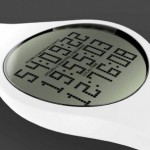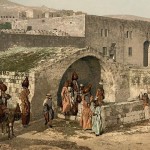“Humpty Dumpty sat on a wall
Humpty Dumpty had a great fall
All the king’s horses and all the king’s men
Couldn’t put Humpty together again”
The story of Humpty Dumpty is as good an allegory for our predicament as any I know.
Humpty Dumpty, as the rhyme goes, has had a great fall and can’t be put together again. This is the second most important fact about Humpty Dumpty, and the first is like it: Humpty Dumpty was at one point unfallen and uncracked. Once upon a time, Humpty was whole; but Humpty has had his great fall, and he cannot get up, and no one under the king’s command can put him back together.
This, in an eggshell, is the story of Humpty Dumpty. It is not enough to say that Humpty sits proudly on a high wall, for that is no longer true. But it is also not enough to say that Humpty lies splattered on the ground oozing yolk from his shell, for that tells us nothing of how he got there, or (importantly) of how he might ever be put back together. We cannot do justice to Humpty Dumpty without telling his full story — and if we are to tell the story well, we must include its beginning, middle, and end.
So it is with us. We too once sat fearlessly on a wall overlooking an entire kingdom; or in other words, we were made in the image of God. But we, like Humpty Dumpty, have fallen from the wall and shattered into a thousand pieces, and no man or beast or machine on earth is able to put us together again. In the beginning, Adam was tall; but Adam at present has had a great fall. That is the beginning and middle of Humpty Dumpty’s story, and of ours.
It is important to remember that we were not always shattered: that before we fell to the ground, we sat upon the wall: that the middle of our story is not the beginning. We may have forsaken our original dignity — it may be seeping from us, like egg yolk, by the minute — but we were all at least born with it, which means that we are all worthy of at least some respect for our previous estate. If we are wayward children of God, we are still nonetheless children of God. The prodigal son does not cease to be a son because he is a prodigal; Esau can sell his birthright, but he cannot sell his birth. And neither can we. Although we may not act it, the reality is that we are royalty: princes and princesses, children of the Most High King. No one has ever talked to a mere commoner; all of our beginnings are just as high as Humpty Dumpty’s. And it is for this reason that Jesus says, “Do not judge” — because it is a commonplace to judge a commoner, but mutiny to judge a monarch. To treat someone as less than royalty is to sin royally, which is why Christ came to save this world of princes and princesses rather than judge it. The problem for Christians is that we have often thought that we could save the world precisely by judging it: that we could save our egg and eat it, too. We have endeavored to bring home a prodigal world by playing the part of its older brother. Consequently, we have lost not just the world but ourselves — for nothing is so repugnant to the world or to God as the sin of the older brother. The younger brother’s sin is undoubtedly grave, but the older brother’s sin stinks to high Heaven worse than a rotten egg. The king’s men may not be able to put Humpty back together, but the mercy they show him is far better than his brother Grumpty’s haughty tirades against Humpty’s clumsiness in high places. It is far better to recall the noble egg that once patrolled the kingdom’s turrets than to scorn him for falling and breaking his golden heart.
We should not, then, forget such a pristine and majestic beginning as Humpty Dumpty’s or ours. Yet neither should we forget that the beginning is over: that we have in fact shattered: that although we once sat smartly on the wall, we have fallen quite violently to the ground. We stand at present in the middle of our story, where things are always worse than at the beginning or the end. If the king’s men are to be of any help to Humpty Dumpty, they must remember not only whence he fell but also that he has fallen. They do him no favors as he fries on the hot pavement to tell him what a dashing pose he struck atop the parapet. The Church debases herself when she denies anyone the dignity of having begun on top of the wall; but the world deceives itself when it pretends that we are all still there. It is a wretched and vile and ungodly thing to treat someone as less than a child of God, and Christians have rightly been condemned for doing so time and time again. But the Panglossian disregard for the facts which says that Adam has merely tripped and will soon get himself back up, though it serves his pride well, does a great disservice to Adam himself. Adam does not need a moment to brush himself off; he needs a miracle to put him back together. Humpty Dumpty’s fall — or rather, his fault — does not leave mere hairline cracks. And neither does ours. The fault in our case also runs deep: It is not in our walls but in ourselves. The Fall of Man was an incident, but it was not merely incidental. The immaculate egg still on the wall is simply pie in the sky.
And that is the rub of it. There are no longer any unbroken eggs — or people. Humpty Dumpty sat on a wall; but Humpty Dumpty has had his great fall. This is unmistakably bad news — for as everyone knows, it is impossible for a cracked egg to be put together again. Water can be frozen and then unfrozen, but only a cracked man tries to uncrack a cracked egg. One cannot put a splattered egg back together anymore than one can put sunlight back into the Sun. Humpty, like humanity, is helpless. That is not pessimism; that is common sense.
The gospel is the good news that, whatever common sense may say, cracked eggs can be put back together. Is is the good news that the bad news only ever comes in the middle of the story and never at the end. It is the good news that the impossible is possible: that the irreversible can be reversed: that dinner has been served, and dessert is pie from the sky. We should not forget the beginning of Humpty’s story on the wall; we should not forget the middle of Humpty’s story and his fall; but we absolutely must not forget how the story ends after all. All the king’s horses and all the king’s men couldn’t put Humpty together again — but Someone can. Nothing can change the past; nothing can unsay even a single unkind word, let alone make amends for ten thousand years of human selfishness and greed; nothing, for that matter, can make amends for my own twenty-three years of selfishness and greed — but Someone can. And the gospel is the good news that the Someone Who can do what all the king’s men could not is the King Himself.
This gospel is a far grander, truer, and more glorious thing than the gospel which so often is preached today: the gospel which speaks of “salvation” as shorthand for “going to Heaven,” as though the solution to all our problems were a simple change of scenery. The good news for us must mean more than simply going to Heaven, just as the good news for Humpty must mean more than simply going back on top of the wall. Humpty Dumpty’s problem is not that he has fallen to the ground, but that he is broken and no longer whole. He does not need the king’s men to carry him back up the wall; he needs them to put him together again. And we children of God, with all of our fears, regrets, falls, cracks, secrets, faults, and failures, are no different. We do not need to go to Heaven; we need to be made whole — made holy. The goal of the faith is not to go to Heaven but to become Heavenly. The gospel is not good news about transportation; it is good news about transformation. That is the lesson of Humpty Dumpty: that the remarkable and unexpected thing is not returning to the wall, but being put back together. The remade egg whose pearly shell once again glistens in the setting Sun, free to wander field and tower, faults and cracks forever gone: That is the gospel.
In the meantime, of course, Humpty has not been put back together. He has had his great fall, and for now can only wait for help beyond that of all the king’s horses and men. He is stuck: stuck on the ground, and stuck in the middle of his story. So, too, are we. We are stuck in the middle of our story, the hardest part of any story, when both the memory of sunlit beginnings and the hope of happy endings falter and sometimes fail. We are stuck in the middle of our story, but the middle is not the end of the story — and that is all that matters. The bad news is that the King could not make a good story without breaking a few eggs. But the good news is that He could not make a good story without perfecting a few eggs, either.












